What the Dead Men Say may refer to:
- What the Dead Men Say (album) by Trivium
- What the Dead Men Say (novella) by Philip K. Dick
What the Dead Men Say may refer to:
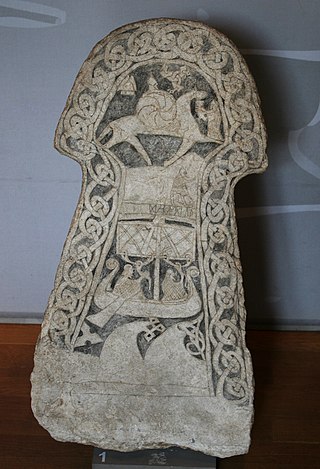
In Norse mythology, a valkyrie is one of a host of female figures who guide souls of the dead to the god Odin's hall Valhalla. There, the deceased warriors become einherjar. When the einherjar are not preparing for the cataclysmic events of Ragnarök, the valkyries bear them mead. Valkyries also appear as lovers of heroes and other mortals, where they are sometimes described as the daughters of royalty, sometimes accompanied by ravens and sometimes connected to swans or horses.
IX may refer to:
Agape is "the highest form of love, charity" and "the love of God for [human beings] and of [human beings] for God". This is in contrast to philia, brotherly love, or philautia, self-love, as it embraces a profound sacrificial love that transcends and persists regardless of circumstance.
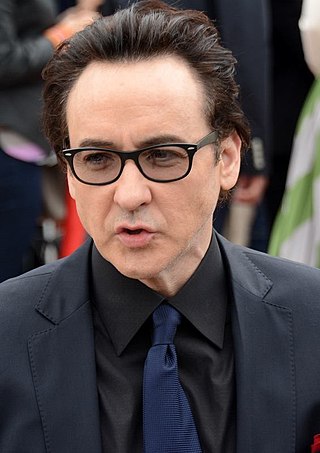
John Paul Cusack is an American actor. He began acting in films during the 1980s, starring in coming-of-age dramedies such as Sixteen Candles (1984), Better Off Dead (1985), The Sure Thing (1985), Stand by Me (1986), and Say Anything... (1989). In the 1990s, he then started appearing in independent films and had leading men roles in Bullets Over Broadway (1994), Con Air (1997), Grosse Pointe Blank (1997), Anastasia (1997), The Thin Red Line (1998), Being John Malkovich (1999), High Fidelity (2000), America's Sweethearts (2001), Max (2002), and Runaway Jury (2003).

"John Brown's Body", originally known as "John Brown's Song", is a United States marching song about the abolitionist John Brown. The song was popular in the Union during the American Civil War. The song arose out of the folk hymn tradition of the American camp meeting movement of the late 18th and early 19th century. According to an 1889 account, the original John Brown lyrics were a collective effort by a group of Union soldiers who were referring both to the famous John Brown and also, humorously, to a Sergeant John Brown of their own battalion. Various other authors have published additional verses or claimed credit for originating the John Brown lyrics and tune.

The tradition of humor in Judaism dates back to the compilation of the Torah and the Midrash in the ancient Middle East, but the most famous form of Jewish humor consists of the more recent stream of verbal and frequently anecdotal humor of Ashkenazi Jews which took root in the United States during the last one hundred years, it even took root in secular Jewish culture. In its early form, European Jewish humor was developed in the Jewish community of the Holy Roman Empire, with theological satire becoming a traditional way to clandestinely express opposition to Christianization.
Gorgias is a Socratic dialogue written by Plato around 380 BC. The dialogue depicts a conversation between Socrates and a small group at a dinner gathering. Socrates debates with self-proclaimed rhetoricians seeking the true definition of rhetoric, attempting to pinpoint the essence of rhetoric and unveil the flaws of the sophistic oratory popular in Athens at the time. The art of persuasion was widely considered necessary for political and legal advantage in classical Athens, and rhetoricians promoted themselves as teachers of this fundamental skill. Some, like Gorgias, were foreigners attracted to Athens because of its reputation for intellectual and cultural sophistication. Socrates suggests that he (Socrates) is one of the few Athenians to practice true politics (521d).
ʿAbd Allāh ibn ʿAbbās, also known as Ibn ʿAbbās, was one of the cousins of the prophet Muhammad. He is considered to be the greatest mufassir of the Qur'an.
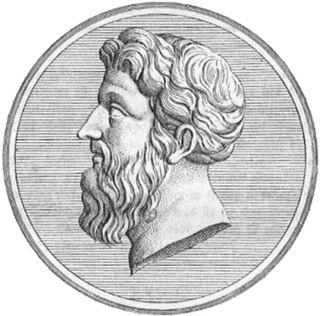
The Latin phrase Demortuisnilnisibonumdicendumest, "Of the dead nothing but good is to be said." — abbreviated Nil nisi bonum — is a mortuary aphorism indicating that it is socially inappropriate for the living to speak ill of the dead who cannot defend or justify themselves.

No Country for Old Men is a 2007 American neo-Western crime thriller film written, directed, produced and edited by Joel and Ethan Coen, based on Cormac McCarthy's 2005 novel of the same name. Starring Tommy Lee Jones, Javier Bardem, and Josh Brolin, the film is set in the desert landscape of 1980 West Texas. The film revisits the themes of fate, conscience, and circumstance that the Coen brothers had explored in the films Blood Simple (1984), Raising Arizona (1987), and Fargo (1996). The film follows three main characters: Llewelyn Moss (Brolin), a Vietnam War veteran and welder who stumbles upon a large sum of money in the desert; Anton Chigurh (Bardem), a hitman who is sent to recover the money; and Ed Tom Bell (Jones), a sheriff investigating the crime. The film also stars Kelly Macdonald as Moss's wife, Carla Jean, and Woody Harrelson as Carson Wells, a bounty hunter seeking Moss and the return of the $2 million.
Troll and trolling are slang terms used almost exclusively among gay men to characterize gay, bisexual and questioning or bi-curious men who cruise or "wander about looking" for sex or potential sex partners or experiences "in a notably wanton manner and with lessened standards of what one will accept in a partner." The term can be used positively or negatively depending on the speaker, usage and intent and can describe the person or the activity. Although often referring to "an unattractive older gay man" and although troll as a slur "is primarily a visual, not a behavioral" judgment, the phrases can be used for anyone who is trolling, regardless of the putative troll's age or perceived attractiveness.
Hymenaeus was an early Christian from Ephesus, an opponent of the apostle Paul, who associates him with Alexander and Philetus.

In the Abrahamic religions, Sodom and Gomorrah were two cities destroyed by God for their wickedness. Their story parallels the Genesis flood narrative in its theme of God's anger provoked by man's sin. They are mentioned frequently in the prophets and the New Testament as symbols of human wickedness and divine retribution, and the Quran also contains a version of the story about the two cities.
This is a list of non-comics media appearances of Gambit.

"Better on the Other Side" is a tribute song from American recording artists The Game, Chris Brown, Diddy, DJ Khalil, Polow da Don, Mario Winans, Usher and Boyz II Men dedicated to Michael Jackson. The song was recorded on June 25, 2009, after being notified that Jackson had died that day, and subsequently released the following day on Diddy's Twitter account. The song gained airplay on radio show "Big Boy's Neighborhood" as well as on Game affiliate DJ Skee's satellite radio show, "Skeetox". The song's lyrics are about Jackson's influence and effect on people worldwide, as well as the recording artist reflecting on their memories of Jackson.

The siege of Banu Qurayza took place in Dhul Qa‘dah during January of 627 CE and followed on from the Battle of the Trench. This stories' earliest record is through Ibn Ishaq, which later historians like Al-Tabari refer to. Scholars like Al-Qurtubi, Al-Tabari, Ibn Kathir and others believe 33:26-27 and 33:9-10 refer to this incident.

"The Grove" is the fourteenth episode of the fourth season of the post-apocalyptic horror television series The Walking Dead, which aired on AMC on March 16, 2014. The episode was written by Scott M. Gimple and directed by Michael E. Satrazemis.
Peg's Place was a San Francisco lesbian bar (1950s–1988) and the site of an assault in 1979 by off-duty members of the San Francisco vice squad, an event which drew national attention to other incidents of anti-gay violence and police harassment of the LGBTQ community and helped propel an unsuccessful citywide proposition to ban the city's vice squad altogether. Historians have written about the incident when describing the tension that existed between the police and the LGBT community during the late 1970s.
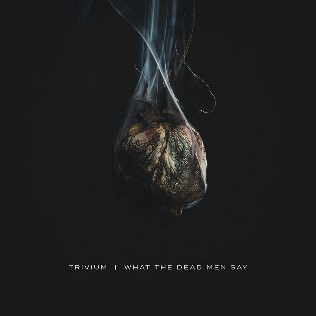
What the Dead Men Say is the ninth studio album by American heavy metal band Trivium. It was released on April 24, 2020, through Roadrunner Records and was produced by Josh Wilbur.
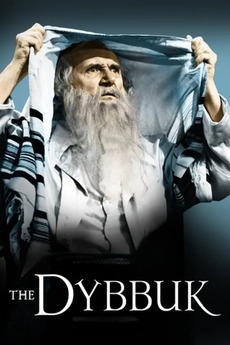
"The Dybbuk" is a 1960 television production of the Russian play The Dybbuk by Sholom Ansky, which was authored between 1913 and 1916 and is considered a Yiddish classic, with Cambridge University Press calling it "probably the most performed of any Yiddish play". It was directed by Sidney Lumet for The Play of the Week from an adaptation into English by Joseph Liss. The program, starring Carol Lawrence, aired on October 3, 1960.